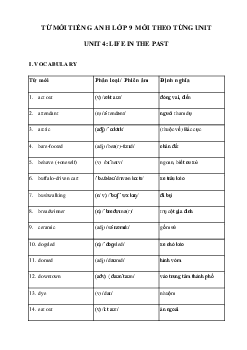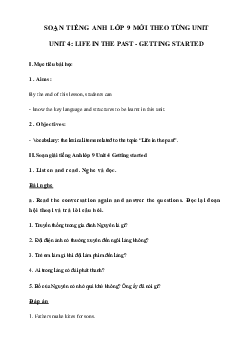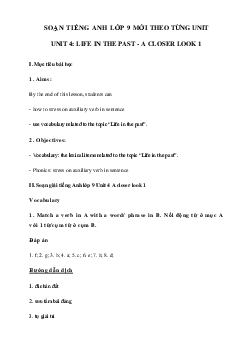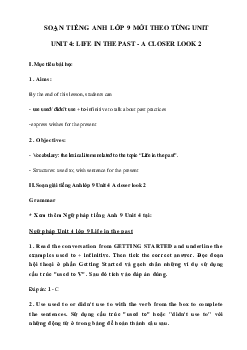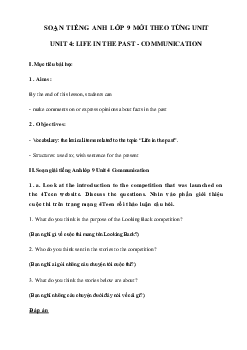

Preview text:
Luyện nghe Tiếng Anh 9 Unit 4: Life in the past
Listen again and write T (true) or F (false) for each statement Statements T/ F
1. Foreigners can learn about Vietnam and its people by learning Vietnamese
2. Mr. Choi Byung lives and words in Korea now
3. Mr Choi thinks Vietnamese is easy for foreigners
4. Mr Choi never studies Vietnamese with a native teacher
5. His Vietnamese has been better thanks to a good study method and lots of practice
Listen to a man talking about how technology has changed children’s lifestyles.
Answer the questions below.
1. What was the child obesity rate in 2012?
_________________________________________________
2. How different was that rate from the 1980’s rate?
_________________________________________________
3. What do screens from digital devices emit?
_________________________________________________
4. What problems may be caused by looking at smartphones’ or tablets’ screens?
_________________________________________________
5. What can be disturbed when children are exposed to screen time at night?
_________________________________________________ -The end-
Đáp án luyện nghe Tiếng Anh 9 Unit 4: Life in the past
Listen again and write T (true) or F (false) for each statement 1. T 2. F 3. F 4. F 5. T Nội dung bài nghe
Learning Vietnamese is becoming more popular with foreigners living and working in
Vietnam. In addition to the language, they are learning more about Vietnam and its people.
52-year-old Choi Byung Joon from the Republic of Korea, who now lives and works in
Hanoi, has been learning Vietnamese for 3 years after studying it for a year in Korea. Mr
Choi said, “I think the most difficult thing about Vietnamese is the 6 different tones.
They are very strange to Korean people. We find it difficult to up and down the tone
when speaking in Vietnamese. There are some Korean people who don’t know how to
make the tone, so few Vietnamese people understand what they are saying.”
Mr. Choi finds Vietnamese an interesting language, so he decided to continue studying
with a native teacher when he came to Vietnam.
His Vietnamese has been improving steadily thanks to a good study method and lots of practice.
He said, “After I moved to Vietnam, I was taught by a teacher who can speak Korean.
Then I realized that I spoke Korean more than Vietnamese when talking with her. Last
year, I changed my teacher who can’t speak Korean, and my Vietnamese got better. She
pronounces words very clearly and beautifully.”
Listen to a man talking about how technology has changed children’s lifestyles.
Answer the questions below. 1. 18% 2. 11 points 3. blue light
4. headaches, eye strain/ irritated eyes 5. sleep
